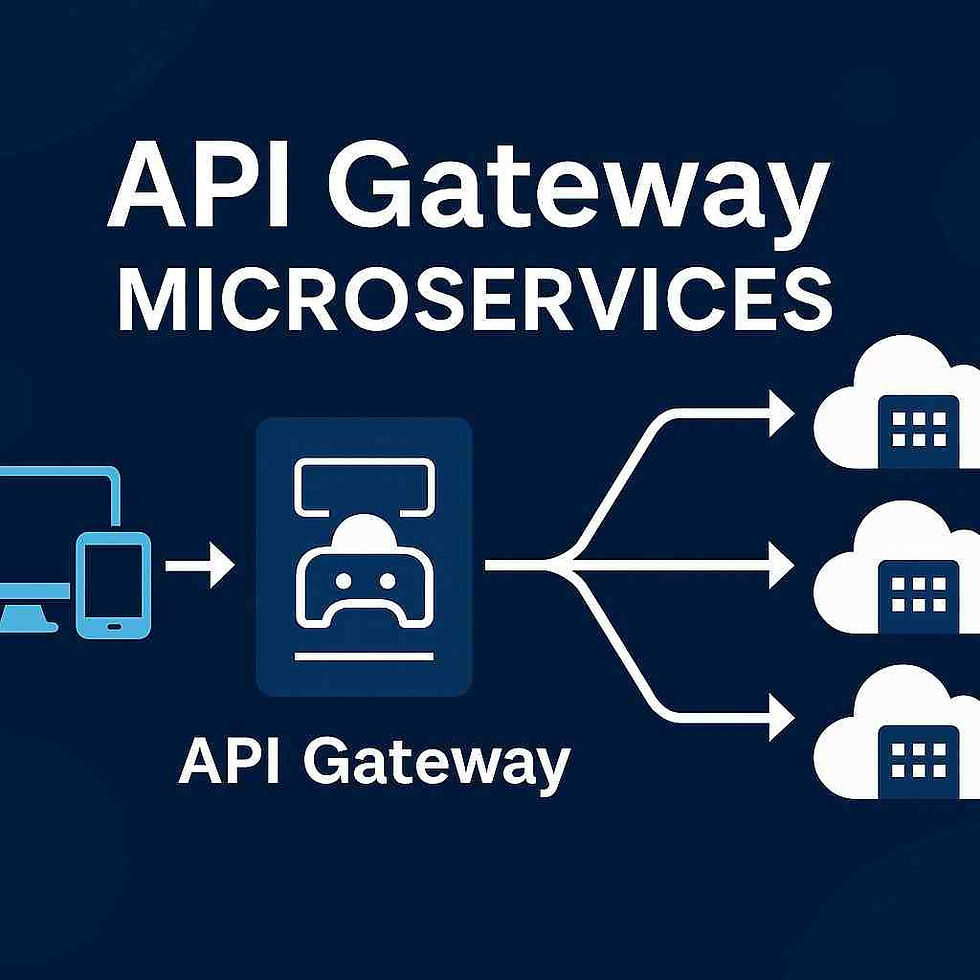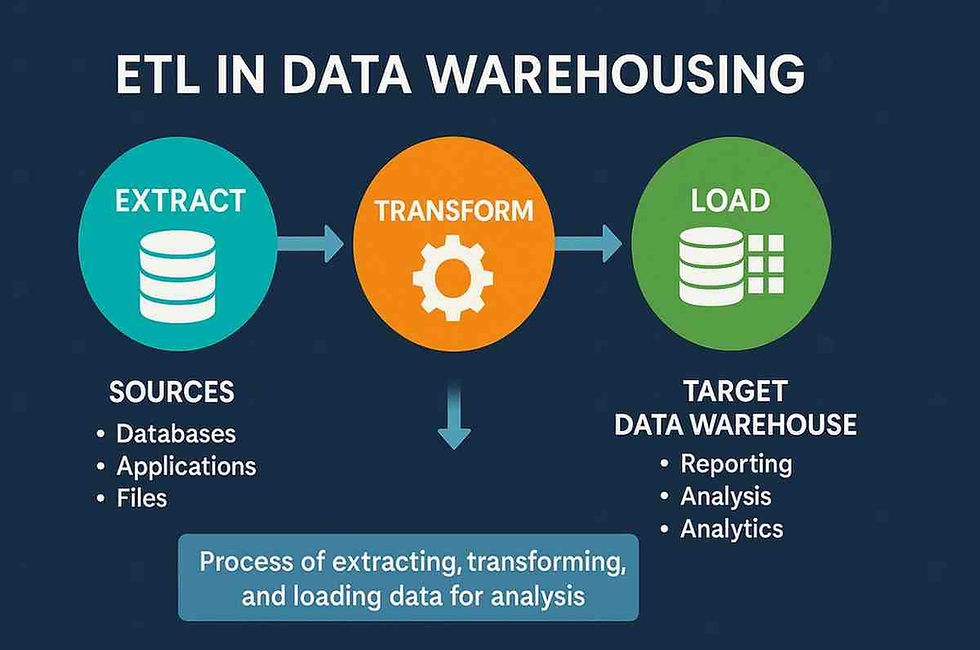How VPN Encryption Protects APIs from Cyber Threat
- Aravinth Aravinth
- Feb 3, 2025
- 5 min read
Updated: May 8, 2025
Introduction
In today's digital world, Application Programming Interfaces (APIs) play a critical role in enabling seamless communication between applications, cloud services, and mobile devices. However, as APIs become more widespread, they also become prime targets for cyber threats like man-in-the-middle (MITM) attacks, data interception, and API abuse.
While traditional security measures like HTTPS, firewalls, and authentication offer some protection, they aren’t always enough to prevent sophisticated cyberattacks. VPN encryption acts as an additional security layer, safeguarding API traffic from unauthorized access, interception, and manipulation.
In this guide, we’ll explore:
The growing security risks APIs face.
How VPN encryption works to protect APIs.
Why DevOps teams and security professionals should integrate VPN encryption in CI/CD environments.
The future of API security, including Zero Trust Security models and AI-driven testing.
Let’s dive deep into how VPN encryption enhances API security and why it’s essential for businesses and developers.

Part 1: Understanding API Security Risks and VPN Encryption
The Growing Threat to API Security
APIs are widely used in cloud applications, mobile apps, IoT devices, and SaaS products, making them an attractive target for hackers. Without proper encryption, API traffic can be intercepted, manipulated, or exploited, leading to security breaches, data leaks, and service disruptions.
Common API Security Vulnerabilities
Data Interception & Eavesdropping
APIs often transmit sensitive data like user credentials, payment details, and personal information. Hackers can intercept unencrypted API requests and steal this data.
Man-in-the-Middle (MITM) Attacks
In an MITM attack, a hacker secretly relays and alters communication between two parties. Without VPN encryption, API traffic is vulnerable to MITM exploits.
Unauthorized Access & Authentication Flaws
Weak authentication mechanisms allow attackers to exploit API endpoints. Even with OAuth 2.0 and API tokens, hackers can still steal credentials and gain unauthorized access.
Injection Attacks (SQL, XML, and JSON Injection)
Malicious actors can inject harmful scripts into API requests, manipulating API responses and extracting confidential data.
Why Traditional API Security Measures Aren’t Enough
While security protocols like HTTPS, firewalls, and token-based authentication are essential, they don’t fully protect against:
Traffic interception at the network level.
Data exposure in unsecured Wi-Fi networks.
Malicious third parties monitoring API endpoints.
This is where VPN encryption provides an additional layer of security, protecting API communication from unauthorized access and threats.
What is VPN Encryption and How Does It Work?
A Virtual Private Network (VPN) is a security tool that encrypts internet traffic, preventing unauthorized access and data interception. VPNs create a secure tunnel for API communication, ensuring data remains private and protected from cyber threats.
Encryption Protocols Used in VPNs
AES-256 Encryption – The industry standard for military-grade encryption, protecting data from brute-force attacks.
IPSec (Internet Protocol Security) – A security framework that encrypts and authenticates network traffic, commonly used for secure API communications.
OpenVPN – A widely used open-source VPN protocol, ensuring strong encryption and secure tunneling.
WireGuard – A modern VPN protocol designed for fast, secure, and efficient encryption of network traffic.
How VPN Encryption Protects API Traffic
Encrypts API requests and responses, making them unreadable to attackers.
Hides API server locations, preventing IP tracking and targeted attacks.
Prevents MITM attacks, ensuring end-to-end encryption for API traffic.
Protects remote API calls in cloud environments and third-party integrations.
By encrypting API communications, businesses can significantly reduce the risk of data breaches and cyberattacks.
Part 2: Implementing VPN Encryption in API Security Strategies
How API Testing Benefits from VPN Encryption
Most API security discussions focus on firewalls, authentication, and token security, but VPN encryption is often overlooked. Codeless API testing solutions like Devzery can integrate VPN encryption to ensure:
Encrypted traffic validation in test environments.
Secure API regression testing in CI/CD workflows.
Early detection of API security flaws before production deployment.
Testing VPN-Encrypted APIs
Automating security validation under encrypted conditions.
Simulating attack scenarios in sandbox environments.
Using AI-powered testing tools to detect encryption loopholes.
By integrating VPN encryption into API testing, businesses can enhance security and ensure compliance with industry standards.
Best Practices for Securing APIs with VPN Encryption
Step-by-Step Security Implementation
Deploy a Zero Trust model – Never trust, always verify API requests.
Use multi-layered authentication – Combine OAuth 2.0 with VPN tunneling.
Encrypt all API traffic using IPSec/OpenVPN tunnels.
Conduct continuous security audits with AI-driven tools.
Ensure secure API integrations with third-party services.
Integrating VPN Encryption into CI/CD Pipelines
Why DevOps Teams Should Care About API Security
CI/CD workflows often expose APIs to security risks.
Unencrypted traffic in testing phases can be exploited by attackers.
VPN encryption ensures secure API communication during software development.
How Devzery’s AI-Driven Testing Enhances API Security
Automates encrypted traffic validation in CI/CD pipelines.
Detects security vulnerabilities in API requests before production deployment.
Ensures compliance with security best practices.
Case Study: A Fintech Company’s Success
A leading fintech company integrated VPN encryption into its API security strategy, reducing MITM attacks and data leaks by 70%. By leveraging Devzery’s AI-powered API testing, they ensured:
End-to-end encryption validation in CI/CD environments.
Automated API security audits for compliance.
Future of API Security: VPNs and Beyond
The rise of Zero Trust Security models integrating VPNs, MFA, and AI-driven testing.
AI-powered API security tools will drive the next generation of automated security validation.
Predictions: Will APIs rely on quantum encryption in the future?
FAQs
1. Why is VPN encryption better than HTTPS for API security?
VPNs encrypt the entire API traffic, including metadata and endpoints, whereas HTTPS only encrypts data in transit.
2. Can VPN encryption slow down API performance?
When configured properly with optimized IPSec/OpenVPN protocols, VPN encryption has minimal impact on API performance.
3. How does Devzery’s AI-powered API testing improve VPN security?
Devzery automates encrypted API request validation, detects vulnerabilities, and ensures security compliance in CI/CD workflows.
4. Can VPN encryption be bypassed by hackers?
While VPN encryption significantly enhances security, poorly configured VPNs or weak encryption protocols can still be exploited. Using AES-256 encryption with strong authentication methods minimizes this risk.
5. Is VPN encryption necessary if my API already uses HTTPS?
Yes, because HTTPS only encrypts data in transit, whereas a VPN encrypts the entire network traffic, including API metadata, request headers, and endpoint locations, providing a higher level of security.
Key Takeaways
APIs are high-value targets for cybercriminals.
VPN encryption adds an extra layer of security beyond HTTPS.
AI-powered API testing ensures secure API workflows.
Zero Trust Security models will shape the future of API security.




Comments